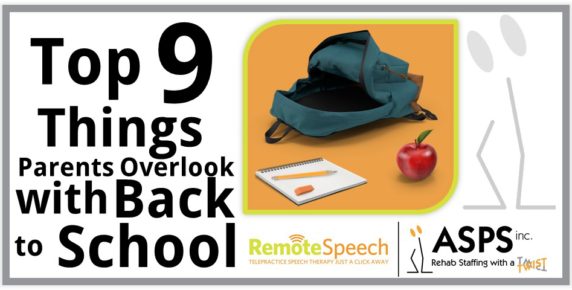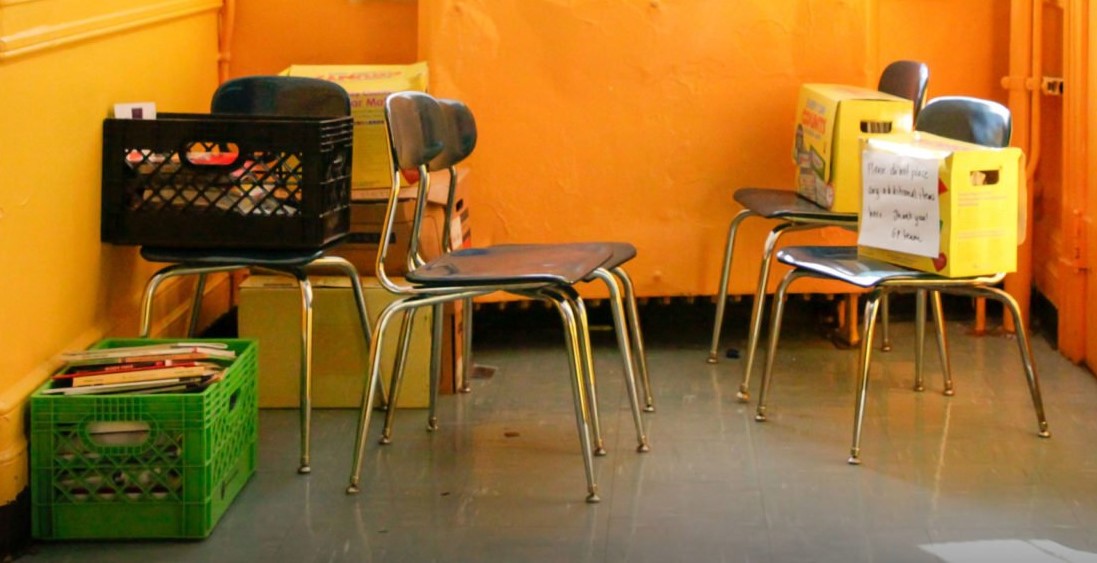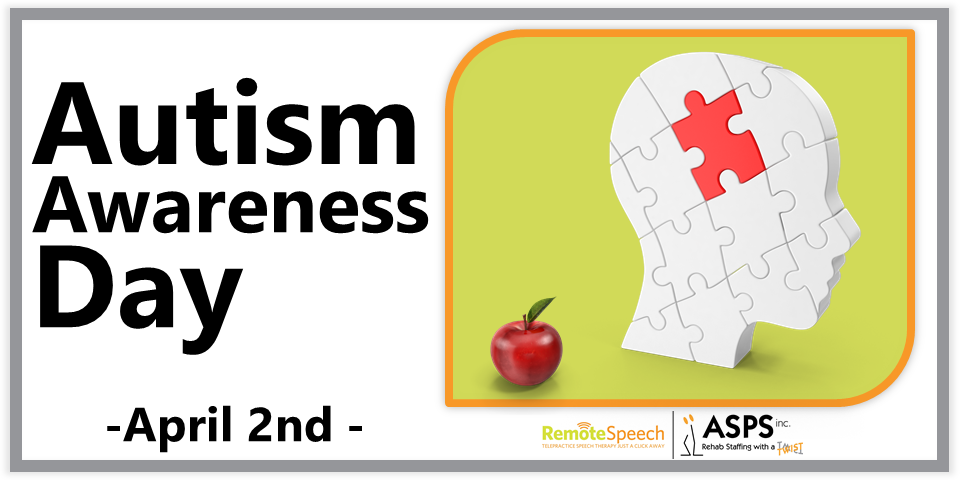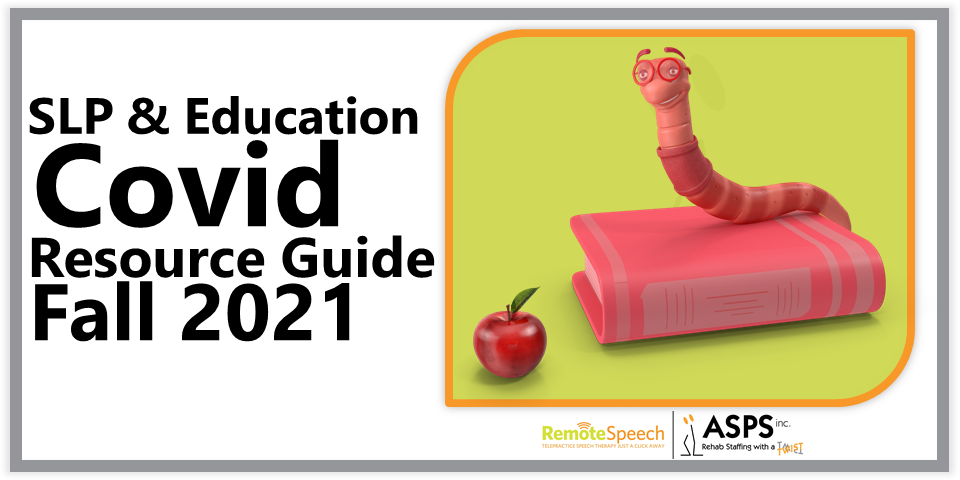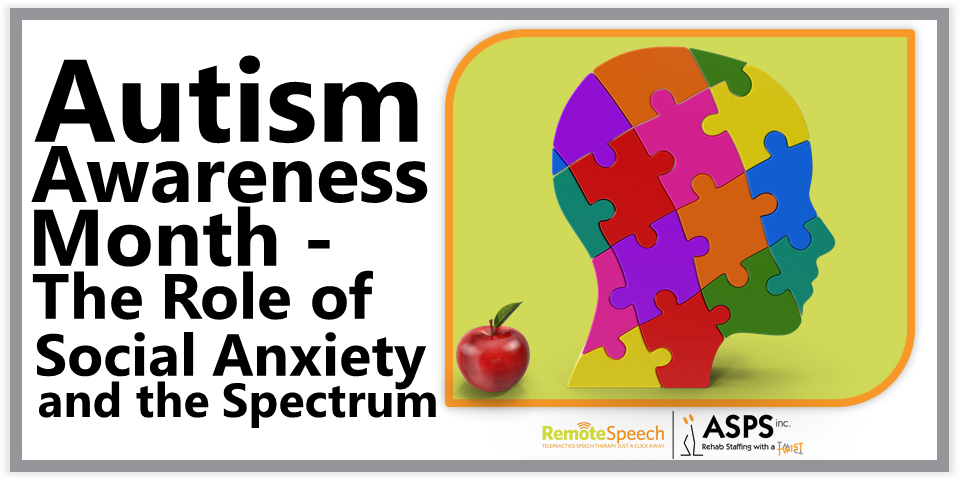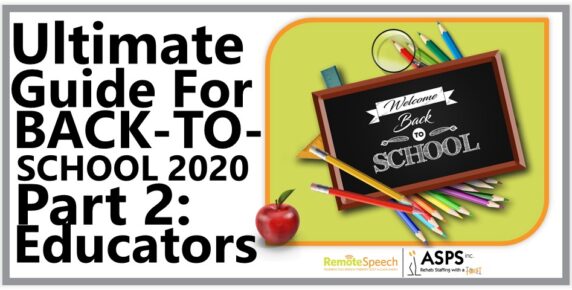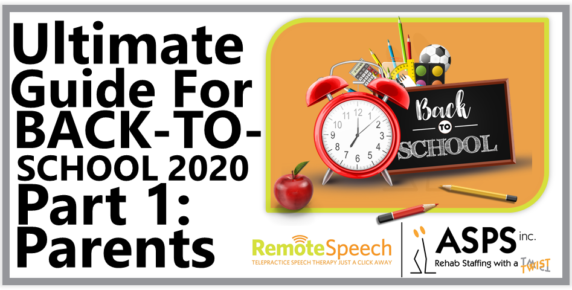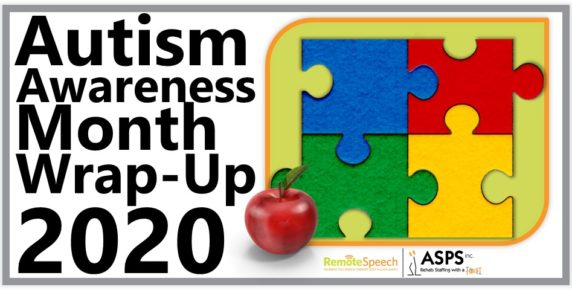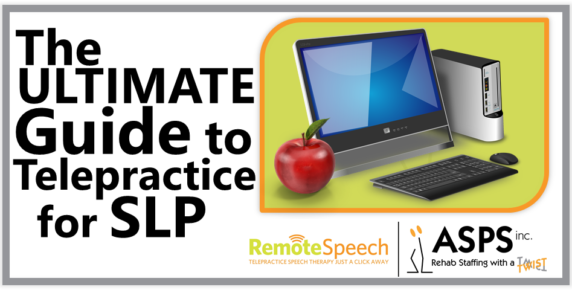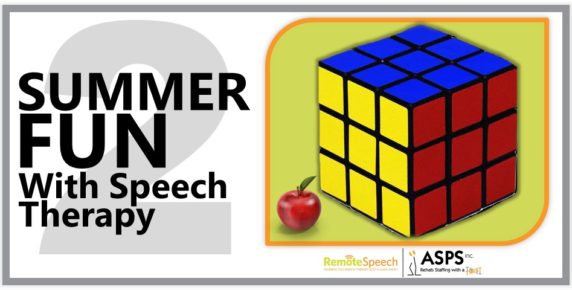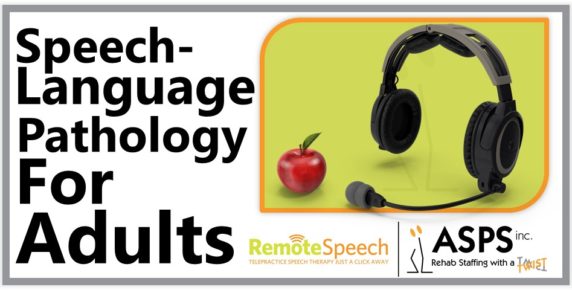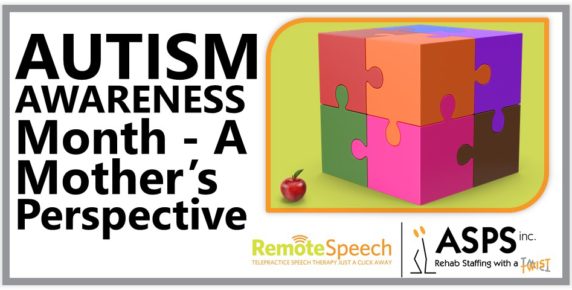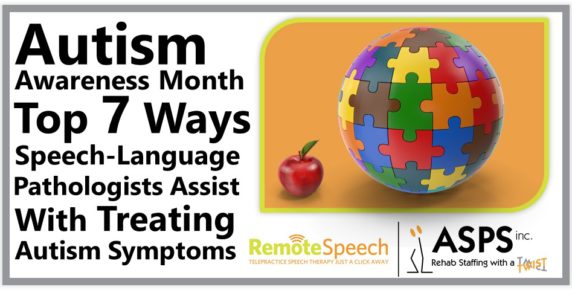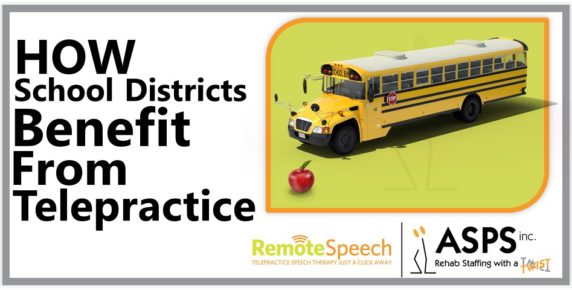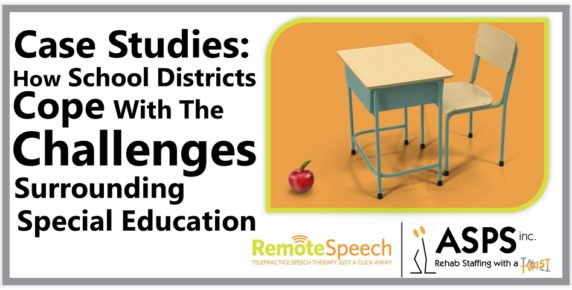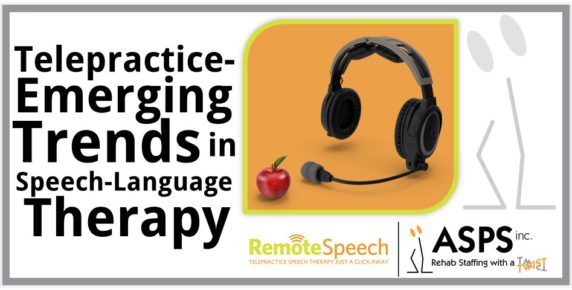Summer seems to whiz by faster and faster every year. Even though back to school preparations can be extensive and exhausting, it’s important not to overlook these valuable guidelines!
1. The Potential Need for Speech-Language Therapy.
While infants and children will grow and learn at their own rate, it’s important to keep a close eye on them to see if they are falling behind in speech, language and communication (communication can be both verbal and non-verbal). Using words and gestures is vital to how people communicate and it is essential that your child doesn’t fall too far behind, especially during their primary years of growth. If they do, this could be a speech-language problem where professional help is required. Click Here to see if your child is on track for hitting important speech-language milestones.
2. Schedule Your Annual Physical Exam with Your Family’s Pediatrician.
Going to the doctor’s a good time to check-in on your child’s physical health and get up to date on immunizations. Your doctor is also able to provide valuable advice and wellness guidance on a variety of topics from diet to exercise.
3. The Importance of A Schedule.
Summer has been wonderfully fun and busy, but now it’s time to get back into a routine. Having a set time to wake up and go to sleep will not only ensure that your child is getting the rest they need but also help to establish their body clocks, making it more natural for them to wake up and fall asleep. An evening routine and morning routine for school will help them to stay focused and develop vital self-care habits, like brushing their teeth every day, combing hair and showering. While it may seem like a decent amount of work to form a routine at first, getting a routine established will teach your child responsibility and discipline.
4. Get Excited to Plan.
While you may remain in charge of planning the bulk of your child’s day, from sports to homework and the like, you can still teach them how to make planning fun! Have them pick out a colorful planner that they like or use apps like iHomework or MyHomeWork if they have a phone or tablet. These organizing tools will help them stay on track with homework, and they will also begin learning about how to plan out their day. These are vital skills that will set them up for success in the years to come.
5. Designate an Area for Homework.
Determining a permanent place for homework helps to promote concentration and alertness. While some teenagers prefer to sit on a bed or couch to do work, sitting at a desk or table allows them space to spread out and focus on what’s in front of them. For younger children, having a set work area means that you do not have to clear everything away every time you want to have a meal and will keep them from getting distracted by other objects or toys. By designating a set space for school work, you will also be able to put up memos and reminders for when projects or homework are due.
6. Carve Out A Set Time or Day For “Family Time.”
With busy school and work schedules, the constant use of technology, and what seems like endless errands, it can be a daunting task to find enough time for everyone to be together. However, don’t underestimate its importance! Taking time to power down the electronics and spend some quality family time together is invaluable. An article by Eisenberg et al (cite at bottom) stated that “family meals offer routine and consistency and provide an opportunity to socialize children and teach them about communication skills, manners, nutrition, and good eating habits.” It could be something as simple as reading, watching a movie, or having dinner together. Family time will have infinite positive outcomes for your child.
7. Don’t Leave Back-To-School Shopping Until the Last Minute.
It tends to take more time than you think! Running around like a chicken with its head cut off leaves you feeling overwhelmed and can permeate throughout the rest of the household as well. Working through back-to-school errands bit by bit will help to alleviate the tremendous stress load that tends to accumulate towards the end of the summer. Not to mention, if you don’t have to cram as much into the final days before school, you will have more time to spend enjoying the last days of summer. This Healthy Essentials timeline will help you conquer your back-to-school to-do list with ease!
8. Check-In with Them.
While running around to get back-to-school items can leave the house feeling like a tornado just blew through, check-in with your child to see how they are feeling about the upcoming school year. If they are feeling nervous or overwhelmed, this is a great time to talk about their issues and help to relieve their nerves. This conversation will teach them crucial communication skills. At the end of the day, you want them to feel excited about the new school year!
9. Have Fun!
Last, don’t forget to have fun! Of course, school is about learning, but it should also be something that your child looks forward to. Help them to love school.
If you believe that your child would benefit from a formal screening from licensed, speech and language pathologist, click here to schedule a complimentary assessment by one of our licensed partners.
Click Here to Learn More About Our Telepractice – Remote Speech-Language Therapy!

Eisenberg ME, Olson RE, Neumark-Sztainer D, Story M, Bearinger LH. Correlations Between Family Meals and Psychosocial Well-being Among Adolescents. Arch Pediatr Adolesc Med. 2004;158(8):792–796. doi:10.1001/archpedi.158.8.79

